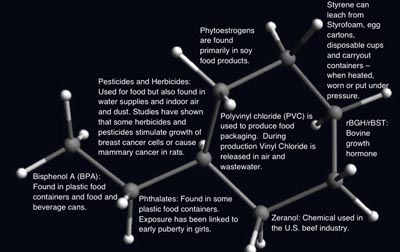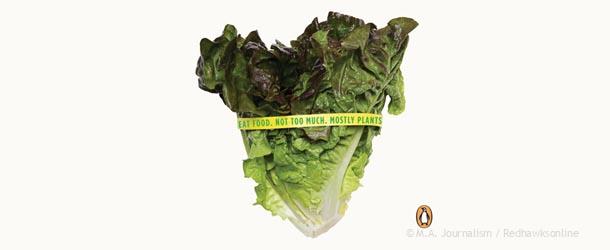Potential health risks result from eating recently popularized “healthy foods”
Daily, new foods are made and placed on the shelf. As a calling these foods promise health, experience and adventure. On the back of one bag of Cheetos, Frito-Lay promises “made with all natural oil” and claims “we grow the best snacks on earth.”
In terms of taste some might prefer Cheetos to other chips but what exactly does the claim “best snacks” refer to? If “best snacks” refers to food, then consumers, sorry to say you have been lied to. One thing many food-products have in common is good marketing, another, and probably the most important thing would be they are not food.
“Eat food,” commanded author Michael Pollan in his 2008 book In Defense of Food. What is that supposed to mean? It seems, all this time, the “stuff” we have been shoving in our mouths really isn’t food.
 As defined by the Oxford American Dictionary, food is “a nutritious substance, solid in form, taken into an animal or a plant to maintain life and growth.”
As defined by the Oxford American Dictionary, food is “a nutritious substance, solid in form, taken into an animal or a plant to maintain life and growth.”
Alongside that definition, many of the foods eaten today don’t and can’t measure up. So what about that yogurt? Good choice, right? Technically, no. That yogurt is a by-product of an original, the work of factories attempting to satisfy the wants and needs of consumers. So what is food?
For now, simply stated food is fruits, vegetables, and anything that doesn’t have a label or advertise itself.
Associate Professor Dr. Murray Jensen of the University of Minnesota chose In Defense of Food for College in the Schools Honors Anatomy and Physiology courses because, he wrote in an email, “Michael Pollan is not a scientist, but he is a journalist who can write a good story. The Western diet is a powerful one and, in my opinion, Pollan does the best job of telling it.”
After reading In Defense of Food for the second year science and Honors Anatomy and Physiology teacher Nancy Cripe offered some advice: balance.
“When you have a plate of food try to put some fruit and vegetables [on it] so that it’s not all processed, refined food products.”
Senior cross country and track runner Mark Lind agrees with Cripe.
“Although it would probably be healthy to only eat all-natural food, that life-style doesn’t seem very attainable unless you are willing to either grow [or] raise your own food, or carefully buy specific foods, which are probably grossly over-priced,” said Lind.
Lind owns chickens and grows fruits and vegetables such as apples, strawberries, okra, pumpkins and many more.
“They [home grown and unprocessed foods] are really awesome, good for you, and taste great, but I couldn’t imagine trying to provide all of my food through my gardens [and] raising,” he said.
In the beginning of it all, seeds were planted in nutritious soil. When the seed grew, it might then become a healthy and nutritious fruit or vegetable. As the West welcomed companies and corporations soil began to be drenched in pesticides and fertilizers. Though helpful for warding off pests, these pesticides and fertilizers robbed soil of its nutrients and resulted in less nutritious product. The next change was refining. Refining converts foods into a fine, ground state, an example of this is sugar, which comes from sugar cane.
The last and possibly most important change in food was the idea of imitating. As scientists began to view the whole food system in a reductionist way (looking at each part individually) the “natural” element of food flew out of the window: Fat became associated with heart disease and began to be extracted from foods creating low-fat labels and new by-products of food (not actually food) such as white bread and “lean” meat became the norm.
Why does this matter one might ask. Well, with the Taher food program, Minnehaha has embarked on a new journey. “We know it [food], we love it [food]” claims Taher. Taher executive chef Jonathan Barnes believes food is “fun, exciting, and adventurous.”
To him, the issue of the western diet (refining and processing) is more a matter of convenience. “Life has happened,” said Barnes. He understands that life is always moving, filled with school, work and sports. Nevertheless the “[extra] time [it takes] is worth it, the more Taher comes into schools the better quality [of food] students get.” Adding chopped vegetables to soups and choosing fresh products (such as leaves and romaine spinach) Barnes has developed the method of incorporating flavor with nutrition.
Based on findings from the New England Journal of Medicine on Feb. 25 the New York Times posted the latest on the Mediterranean diet. The diet has shown to help those with a high risk of heart disease with a diet of fruits, vegetables, olive oil, nuts, white meat and occasionally some wine.
With the exception of white meat and wine, the diet has attempted to move consumers from processed food products to food, precisely Pollan’s advice.
With that being said, knowledge is a valuable thing. Go out fellow consumers, be better equipped and “eat food”.

